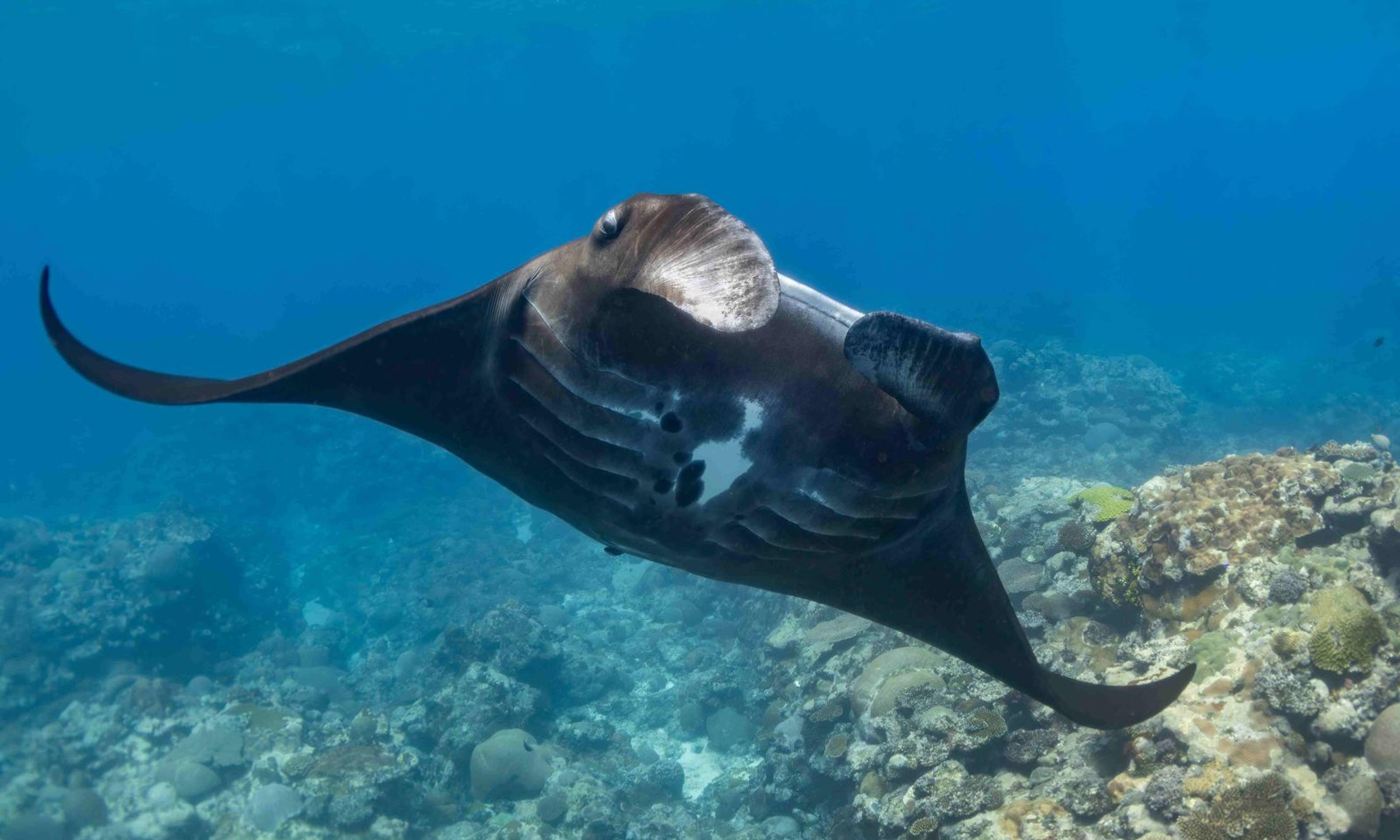

A manta ray swims in the waters of Tuvalu.
Photo/National Geographic Pristine Seas/Manu San Félix
Vanuatu backs National Geographic Pristine Seas mission to survey and study fragile ocean
Prime Minister Jotham Napat says Vanuatu is 98 per cent ocean as scientists launch an expedition to survey biodiversity and strengthen marine protection across 80 islands.

Time for an Indigenous State of Origin? The All Stars game shows who really powers the NRL



The National Geographic Pristine Seas team has launched its month-long expedition in Vanuatu, aimed at studying ocean ecosystems that are threatened by cyclones, warming seas, and overfishing.
The mission, initiated by the Vanuatu government, will document the country’s biodiversity and geology to support national marine spatial planning. The Vanuatu mission marks the 11th stop of Pristine Seas’ Global Expedition, which, since 2023, has surveyed ecosystems in Tuvalu, Fiji, Rotuma, Palau, among others.
Vanuatu Prime Minister Jotham Napat says he takes ocean management “very seriously” for his nation. He says their sovereign territory is 98 per cent ocean and that they are “solwara people”, a Bislama term for “salt water” or “sea”. This highlights the inseparable bond between the ni-Vanuatu people and the ocean.
“The scientific data and information that Pristine Seas will provide for Vanuatu through the upcoming expedition will enable us to know clearly the state of our ocean ecosystems and the extent of biodiversity loss,” Napat says.
Local and international scientists are working aboard the Argo, a ship with advanced technology for exploration, research, and filmmaking. The expedition is being conducted with the Vanuatu Ministry of Fisheries, Oceans and Maritime Affairs, the Vanuatu Ministry of Climate Change Adaptation, Meteorology and Geo-Hazards, and Blue Prosperity Vanuatu.
The team will collect data over 80 islands in Vanuatu’s region, investigating coral reefs, mangrove forests, deep sea habitats, and seabird colonies. One priority is documenting dugongs, locally known as kowfis, whose presence indicates ecosystem health.
Paul Rose, the expedition leader, says they aim to combine traditional knowledge with contemporary science to “paint a picture” of Vanuatu's ocean, which will help protect it further.
“Vanuatu is already a leader in fighting climate change, so we’re excited to be here, working with local experts who know the ocean so intimately,” Rose says.
Researchers will use a mix of underwater surveys, seabird counts, and submersible dives to strengthen Vanuatu’s marine spatial plan. The Argonauta submersible, capable of reaching depths of 1300 metres, is equipped for environmental DNA sampling to detect species unseen by cameras.

Expedition leader Paul Rose. Photo/National Geographic Pristine Seas
Mia Rimon, Pristine Seas’ Melanesia Policy Lead, says Vanuatu has a “solid vision” for ocean conservation, especially given that it is the first Pacific nation to enact a national ocean policy.
“Committing to the full protection of 30 per cent of its ocean space by 2030, Ni-Vanuatu people are ocean people and they want solutions to heal and revive their marine space while they still can,” Rimon says.
Community-led conservation is already part of Vanuatu’s heritage. The Nguna-Pele Marine and Land Protected Area Network, founded in 2002 by traditional chiefs, oversees 3000 hectares of ecosystems across two islands.

A banyan tree on a hill overlooking the beach at Panita village, Vanuatu. Emae Island is in the background. Photo/National Geographic Pristine Seas/Chris Thompson
Prime Minister Napat says he is “gravely concerned” about climate change, overfishing, and population growth, which continue to threaten ocean health.
“Together with Pristine Seas, our partners and all of our government ministries, we are working toward establishment of large Marine Protected Areas to enable our Solwara to revive and recover,” Napat says.
“To ensure that our people will have access to abundant marine resources to support our lives for all future generations of ni-Vanuatu.”

Vanuatu Prime Minister Jotham Napat and his wife Lettis Napat. Photo/Facebook/Jotham Napat
Fieldwork will include Torba, the northernmost province, and Shefa, where sites such as the Kuwae Crater and Tongoa Wall feature volcanic landscapes, coral reefs, and seabird colonies.
Lindsay Young, Pristine Seas’ Vice President of Research, says Vanuatu’s oceans have some of the most “extraordinary” marine biodiversity in the Pacific.
“From volcanic seascapes and deep sea mysteries waiting to be discovered to vibrant coral reefs and the species and communities that depend on them,” Young says.
“Together with local scientists, we hope to support Vanuatu’s vision for a healthy ocean future that protects biodiversity, sustains livelihoods, and inspires the next generation of ocean stewards.”

A bay in Sola, Vanua Lava, Vanuatu. Photo/National Geographic Pristine Seas/Chris Thompson
Youth engagement is also central. Twelve young people in Pentecoste will join a National Geographic Photo Camp project, documenting traditional conservation knowledge, supported by mentorship from National Geographic Explorers and local photographers.
The launch comes just months after the International Court of Justice confirmed states’ legal obligations to address climate change, a case initiated by Vanuatu and allied nations.
Rose says the expedition supports small island nations in defending “their rights, protect their ocean, and strengthen their resilience in the face of climate change”.